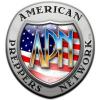| Online: | |
| Visits: | |
| Stories: |

| Story Views | |
| Now: | |
| Last Hour: | |
| Last 24 Hours: | |
| Total: | |
Could You Survive on Melted Snow?
 It’s snowpocalypse 2015 where I live and in most of the county. Staring out at the glistening ice crystals I started to wonder one thing, “In an emergency, could you drink melted snow?” I’ve seen many survival movies and shows where people survive for days on melted snow and Cliff Bars. In an emergency I would say that drinking melted snow is without a doubt a good way to survive. However, could snow make you ill thus dehydrating you or could it cause long term damage?
It’s snowpocalypse 2015 where I live and in most of the county. Staring out at the glistening ice crystals I started to wonder one thing, “In an emergency, could you drink melted snow?” I’ve seen many survival movies and shows where people survive for days on melted snow and Cliff Bars. In an emergency I would say that drinking melted snow is without a doubt a good way to survive. However, could snow make you ill thus dehydrating you or could it cause long term damage?
There are many variables that I cannot control in order to investigate the answer thoroughly but I will do the best I can by exploring thoughts by other experts and also by sharing the results of our in-house snow to water test.
Boiling Water vs. Freezing Water
Boiling water has a different effect on water than freezing water. Boiling water is extremely efficient at killing things that are alive in the water like bacteria. Freezing does the same but to a lesser extent. For example, many bugs go to sleep during the winter but they do not die. In the spring, when warm enough, they remerge. Freezing water works in the same manner; it kills some things and puts some things to sleep. For example, last year’s E. coli outbreak was traced back to frozen foods. You wouldn’t eat a frozen piece of raw chicken would you? Of course not. That’s because freezing is not the same as cooking a piece of chicken. Heat kills a lot more.
How to Pick the Best Snow for Drinking
Backpacker.com suggests that you:
- Pick a clean white snow
- Pick snow from a low traffic area
Many experts suggest that you try to boil the snow if at all possible even after picking the cream of the crop powder. At the same time, almost all experts suggest that you try to melt the snow before consuming it to keep your core body temperature up.
The Results of our Snow-to-Water Testing
We live in a fairly populated suburban environment so testing our snow will not be the same as what you would find in an area where you really needed to consume snow to survive. However, out of curiosity we melted one teacup full of snow naturally = indoors and in direct sunlight.
If you plan to boil snow in the wild, you must first melt some as trying to cook frozen snow might actually produce a burning effect. With that in mind we performed two tests.
We tested the naturally melted snow and we boiled the naturally melted snow for 10 minutes and performed a second test
After a few hours, the snow was sufficiently melted so we used a total dissolved solid (TDS) meter to take a reading on our melted snow. The snow measured a surprising 2 parts per million (PPM) TDS! To give you a comparison, our under-the-sink reverse osmosis water tested at 4 PPM and our fridge filtered water at 122 PPM.
Once we boiled the water the TDS went up to 11 PPM, suggesting that perhaps our non-stick pot is adding some Teflon or something to the water, which sounds scary and is another subject altogether. We’ll likely be replacing our cookware in the near future.
Unfortunately, we did not have a water test kit to check for bacteria and viruses; however, I’d say that if you could boil the melted snow before consumption you’d have a very safe and pure source of water in a survival situation. Just about as pure as you can get at home using a water purification system.
So remember, if you’re ever stuck in a situation where there’s snow, but no water.
- Gather clean snow.
- Melt it naturally if possible.
- Boil if possible,
- Drink
- Survive
John Davis is the owner and author at YourWaterFilterGuide.com, a site dedicated to helping everyone find the best water filtration solution for their needs. He’s also a husband and father who loves staying fit and well hydrated while protecting his family and property.
The post Could You Survive on Melted Snow? appeared first on American Preppers Network.
American Preppers Network Blog: www.AmericanPreppersNetwork.com Forum: www.AmericanPreppersNetwork.net
Source: http://americanpreppersnetwork.com/2015/03/survive-melted-snow.html



